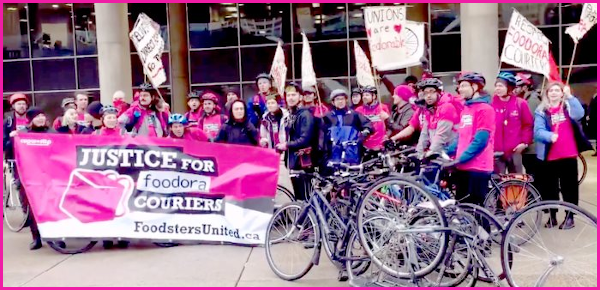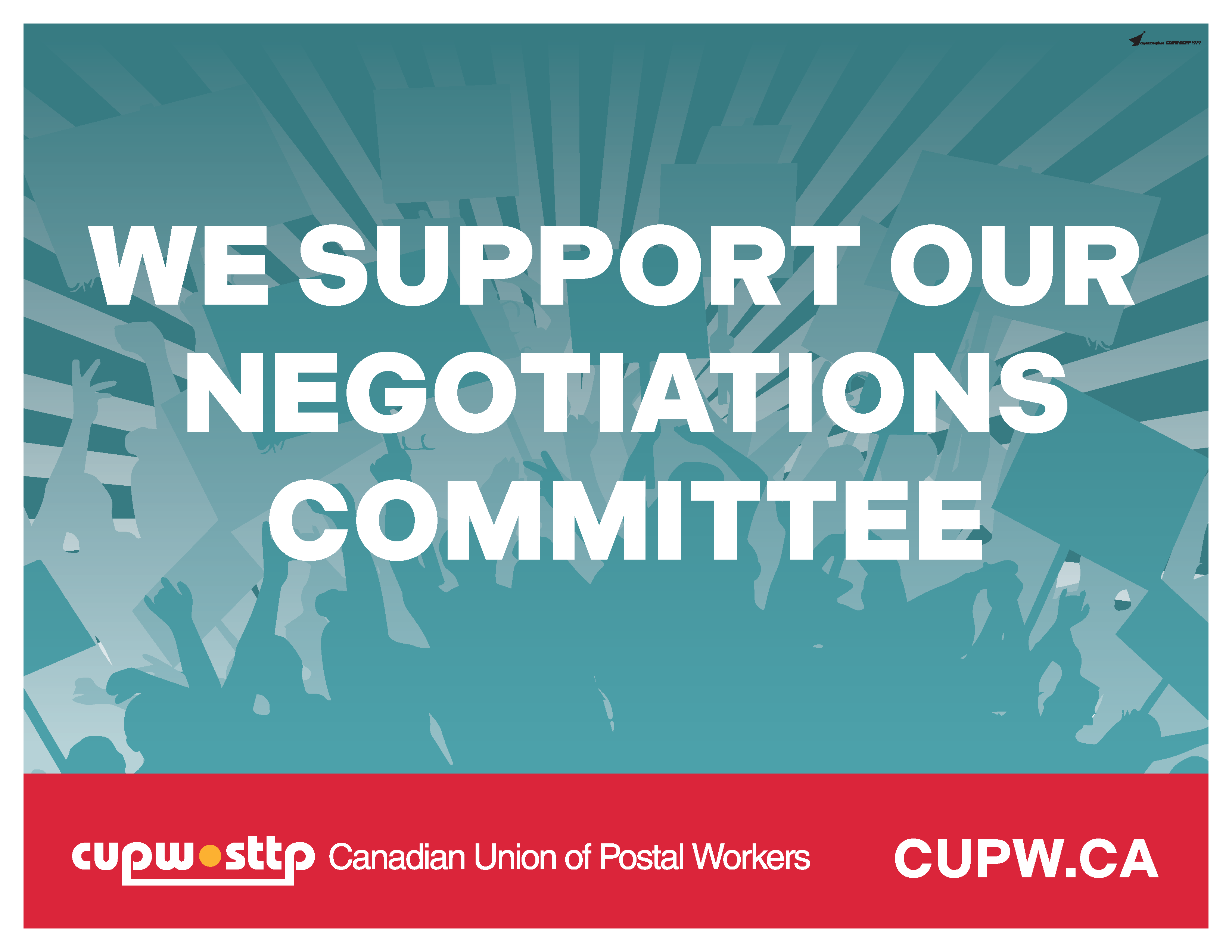
Thursday February 27 2020
We are one big step closer to certification to represent Foodora couriers in Toronto. And the decision is a big precedent for organizing gig workers.
On Februrary 25, the Ontario Labour Relations Board (OLRB) delivered a landmark decision siding with CUPW’s arguments that Foodora Couriers are dependent contractors (a classification closer to ‘employee’) of Foodora and not independent contractors.
It is the first such decision by the OLRB — or by any labour board in Canada to the best of our knowledge — on workers in the gig economy. However, the decision shares many of the hallmarks of previous OLRB decisions regarding worker classification, including past cases regarding couriers. The major difference in this case is Foodora’s App.
As noted by the OLRB, the App was key to determining the relationship of the couriers to Foodora because its business operation flows through the App. Foodora has couriers sign a contract that calls them independent contractors, they must do this as a condition of employment. However, it does not change the facts.
“…it is about the right and ability of the company to control how the work is performed that lends more favourably to a conclusion that the individuals are dependent contractors. The evidence, as described under the various factors, shows that Foodora couriers might work independently, but always within the parameters unilaterally established by Foodora and under the watchful eye of dispatch.”
The decision cited a number of reasons that the relationship between couriers and Foodora more closely resembles that of an employee. Through the App, Foodora has power over how and where the couriers perform their work and can use GPS to monitor them. It has control over the couriers’ workflow, work rules, scheduling, incentives and restrictions, and can supervise their pace. It also has the ability to discipline them in a manner similar to progressive discipline.
“The Board concludes that when examining the level of integration, the couriers more closely resemble employees rather than independent contractors.”
Unlike entrepreneurs, couriers are unable to self-hire or promote their services directly to restaurants and customers. Couriers also cannot unilaterally change the rates and fees charged for their services. If variations are required, all changes must be done through the App and the dispatchers.
“In every practical sense, Foodora ensures the relationship is between itself, the customer and the restaurant. The courier is a cog in the economic wheel – an integrated component to the financial transaction. This is a relationship that is more often seen with employees rather than independent contractors.”
This is a critical decision towards better worker rights in the gig economy, and a big win for our external organizing. But we still need progressive legislation that will protect all precarious workers including temporary, contract, and gig workers.
Next Steps
CUPW filed for union certification with the OLRB on July 31, 2019. Voting took place from August 9 to 13, with hearings beginning in October. In the meantime, results of the vote are sealed.
Now that the couriers are deemed dependent contractors, the OLRB will resolve other issues in contention before releasing results of the vote.
This win for the foodsters is a win for all postal workers and a step forward for better worker rights in app-driven workplaces.
In solidarity,
